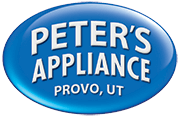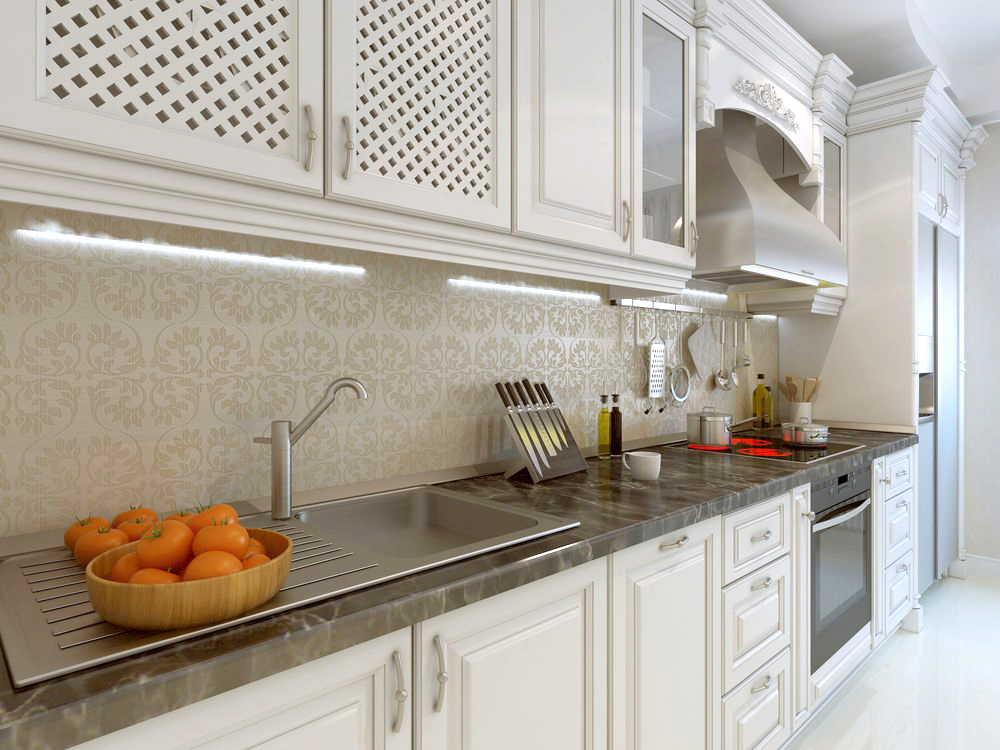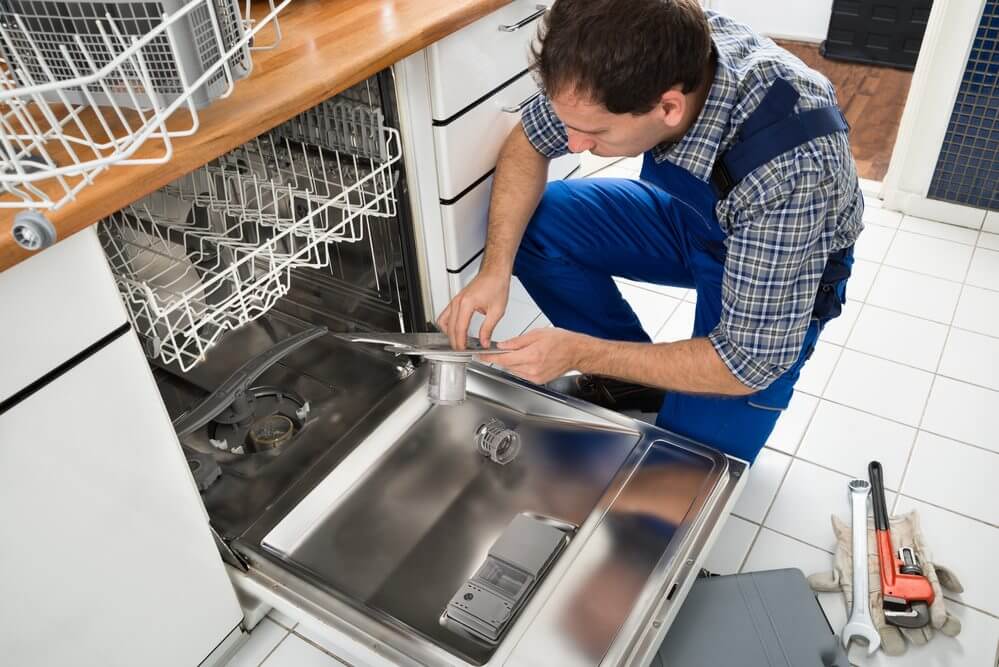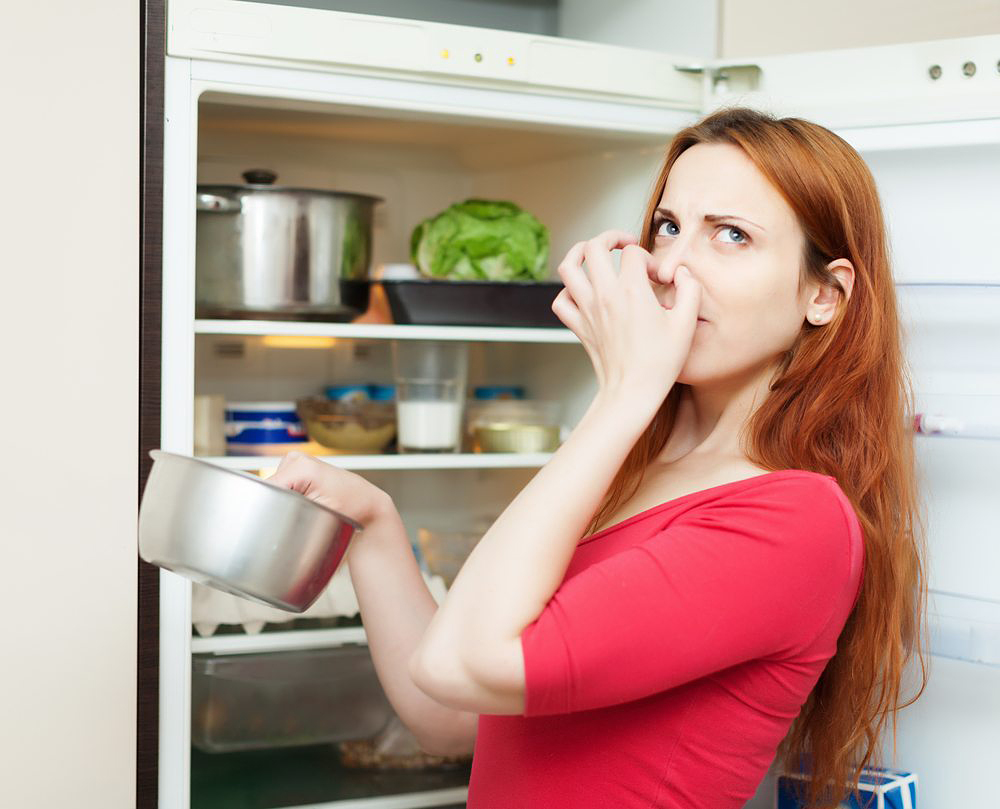Believe it or not, your range hood is one of the most important appliances in your kitchen. Range hoods filter grease, reduce smoke and eliminate unwanted, lingering, cooking odors. Like all appliances, proper maintenance is required to keep your range hood functioning effectively, and this starts with regular cleaning. The following steps will guide you through the sanitation process and ensure your range hood is working properly.
Exterior Cleaning Process
Look at the outside of your range hood. You may notice spatterings of grease and food stuck to the rim. Make sure the appliance is disconnected from its power source, then apply a degreasing spray or dishwashing detergent. Wipe clean with a sponge or cloth soaked in hot water. Avoid spraying fluid on any electrical components such as the lightbulb or fan controls. This could damage the wiring and leave you in a deeper predicament.
Soak and Scrub Removable Filters
Next, it is time to address the grease buildup in the removable filters on the underside of the range hood. Reference the owner’s manual for information on how to disengage each filter. For most models, you can easily slide the filters out after pulling a ring or pressing a tab. Fill your sink with hot, soapy water and let the filter soak for at least 10 minutes. Wash and rinse the filter afterward, then put it through a dishwasher cycle to complete the cleaning.
Keep Vent Grease Free
Many range hoods include a vent leading outside where it dispenses filtered air. Over time, grease can build up inside the venting system if it makes its way past the filter. This is a fire hazard and must be cleaned right away. Contact a professional able to access the vent ductwork and protect your kitchen from grease fires.
Stay Aware of Fire Hazards
An improperly working range hood can put your kitchen at an increased risk of grease fires. Neglecting to clean the filter can lead to a crusty buildup of grease above your range — one spark can set the range hood on fire. Also, listen for irregularities in the fan’s operation. If the fan’s motor begins to slow down, it may need to be replaced. Sometimes cleaning can help improve performance, since grease buildup can also affect fan speed.
If a grease fire ever starts on your stovetop, turn off the fan — it can draw the flames up into the system and cause even more damage. Use a fire extinguisher to douse the flames (never put water on a grease fire) or call the fire department immediately.
Keep your appliance clean and free of all grease and dirt, and your kitchen will function smoothly for years to come. Of course, if you have difficulty maintaining your range hood or notice a breakdown in the system, contact Peter’s Appliance for fast, efficient repairs by an expert team.



